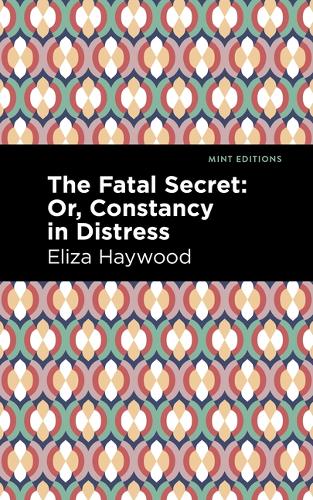
The Fatal Secret: Or, Constancy in Distress
(Hardback)
Publishing Details
The Fatal Secret: Or, Constancy in Distress
By (Author) Eliza Haywood
Contributions by Mint Editions
Mint Editions
Mint Editions
5th January 2022
United States
Classifications
General
Non Fiction
Classic fiction: literary and general
Physical Properties
Hardback
44
Width 127mm, Height 203mm
Description
The Fatal Secret: Or, Constancy in Distress (1724) is a novel by Eliza Haywood. Blending tragedy and comedy, Haywood explores the intersection of ambition, family, and desire to reveal how women so often fall victim to the whims of villainous men. The Fatal Secret: Or, Constancy in Distress is considered a prime example of the popular genre of amatory fiction, which often used love triangles to expose the imbalance between male and female desire in a patriarchal society. Nothing is so generally coveted by Womankind, as to be accounted Beautiful; yet nothing renders the Owner more liable to inconveniences. Getting by on looks alone, young Anadea has managed to secure herself a marriage proposal from a wealthy gentleman. Pressured by her father, she believes it is up to her to renew her once-prominent familys fortune and status in eighteenth century Paris. One night, she falls in love with the handsome Count Blessure. Although he reciprocates her feelings, he is keenly aware of his own familys prejudice against the poor, no matter the nobility of their ancestors. With a beautifully designed cover and professionally typeset manuscript, this edition of Eliza Haywoods The Fatal Secret: Or, Constancy in Distress is a classic of English literature reimagined for modern readers.
Author Bio
Eliza Haywood (1693-1756) was an English novelist, poet, playwright, actress, and publisher. Notoriously private, Haywood is a major figure in English literature about whom little is known for certain. Scholars believe she was born Eliza Fowler in Shropshire or London, but are unclear on the socioeconomic status of her family. She first appears in the public record in 1715, when she performed in an adaptation of Shakespeare's Timon of Athens in Dublin. Famously portrayed as a woman of ill-repute in Alexander Pope's Dunciad (1743), it is believed that Haywood had been deserted by her husband to raise their children alone. Pope's account is likely to have come from poet Richard Savage, with whom Haywood was friends for several years beginning in 1719 before their falling out. This period coincided with the publication of Love in Excess (1719-1720), Haywood's first and best-known novel. Alongside Delarivier Manley and Aphra Behn, Haywood was considered one of the leading romance writers of her time. Haywood's novels, such as Idalia; or The Unfortunate Mistress (1723) and The Distress'd Orphan; or Love in a Madhouse (1726), often explore the domination and oppression of women by men. The History of Miss Betsy Thoughtless (1751), one of Haywood's final novels, is a powerful story of a woman who leaves her abusive husband, experiences independence, and is pressured to marry once more. Highly regarded by feminist scholars today, Haywood was a prolific writer who revolutionized the English novel while raising a family, running a pamphlet shop in Covent Gardens, and pursuing a career as an actress and writer for some of London's most prominent theaters.
